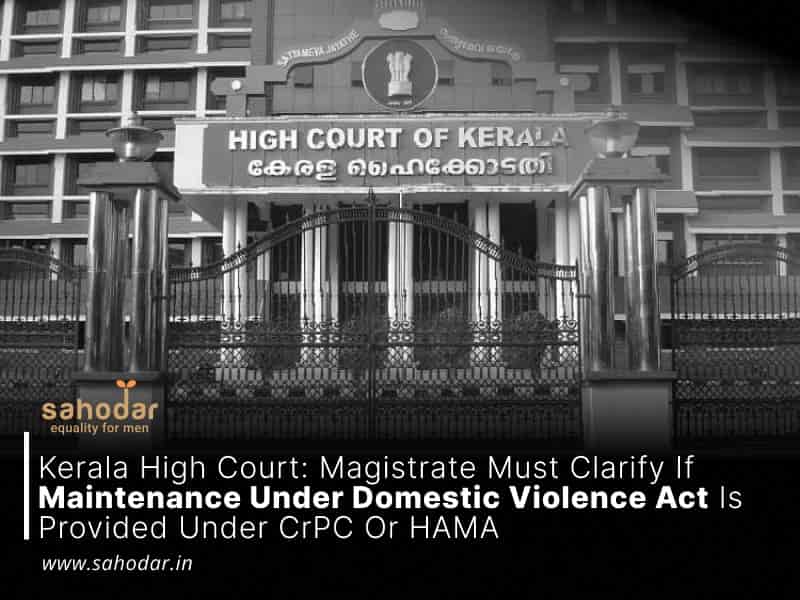The Kerala High Court ruled that when a Magistrate orders maintenance for a daughter under Section 20(1)(d) of the Domestic Violence Act, they must specify whether the order is made under Section 125 of the CrPC or Section 20(3) of the Hindu Adoptions and Maintenance Act, 1956 (HAMA).
Justice P G Ajithkumar ordered thus:
“In the light of the discussions made above, I hold that the Magistrates dealing with a petition claiming maintenance under Section 20(1)(d) of the D.V.Act shall specify in the order under which provision; whether under Section 125 of the Code or under Section 20(3) of the Maintenance Act maintenance is ordered. Reminding the learned Magistrates dealing with matters coming under the D.V.Act of the above aspect, this petition is dismissed.”
In this case, both the father and daughter are Hindus. When the daughter was 14 years old, she filed a petition before the Additional Chief Judicial Magistrate (Economic Offence) Court in Ernakulam seeking maintenance.
The Magistrate ordered the father to pay the daughter a monthly maintenance of 2000 rupees under Section 20(1)(d) of the DV Act.
When the daughter reached adulthood, the father filed a petition to be exempted from paying monthly maintenance under the DV Act.
The father argued that his daughter had reached the age of majority and was earning a sufficient income from her employment abroad. The daughter countered that her father was still liable to pay monthly maintenance as she was unmarried and without an income.
In 2015, the Magistrate granted the father’s petition and exempted him from paying monthly maintenance to his adult daughter under the DV Act. The daughter, dissatisfied with the order, approached the High Court.
While the revision petition was pending, the daughter got married in 2017. Therefore, the Revision Petition will address her entitlement to monthly maintenance from 2015 until her marriage in 2017.
The Court noted that the Magistrate could order monthly maintenance to the daughter under Section 20(1)(d) of the DV Act. It clarified that the maintenance order could be made either under Section 125 of the CrPC or Section 20(3) of the Maintenance Act.
The Court further explained that the nature of the maintenance order would differ depending on whether it was issued under Section 125 of the CrPC or Section 20(3) of the Maintenance Act.
The Court ruled that if a maintenance order were made under Section 20 (3) of the Maintenance Act, then maintenance payment would continue till the daughter gets married or till she becomes self-reliant. “If in recognition of the statutory right of the daughter under Section 20(3) of the Maintenance Act ordered the father to pay maintenance, that obligation can be ceased only on she marries or becomes an earning member. The court can order exemption only if the father proves such a disqualification of the daughter to receive maintenance”, added the Court.
Furthermore, the Court held that if a maintenance order was issued under Section 125 of the CrPC, the maintenance payments would cease once the daughter reached the age of majority. According to Section 125 of the CrPC, an adult unmarried daughter is not entitled to maintenance unless she has a physical or mental abnormality that prevents her from supporting herself. The Court noted that Section 125 of the CrPC is secular and universally applicable, so it cannot be presumed that maintenance would not be ordered under this section.
The Court found a lack of specificity in the Magistrate’s order and emphasized that the Magistrate should explicitly state whether the maintenance is ordered under Section 125 of the CrPC or Section 20(3) of the Maintenance Act.

